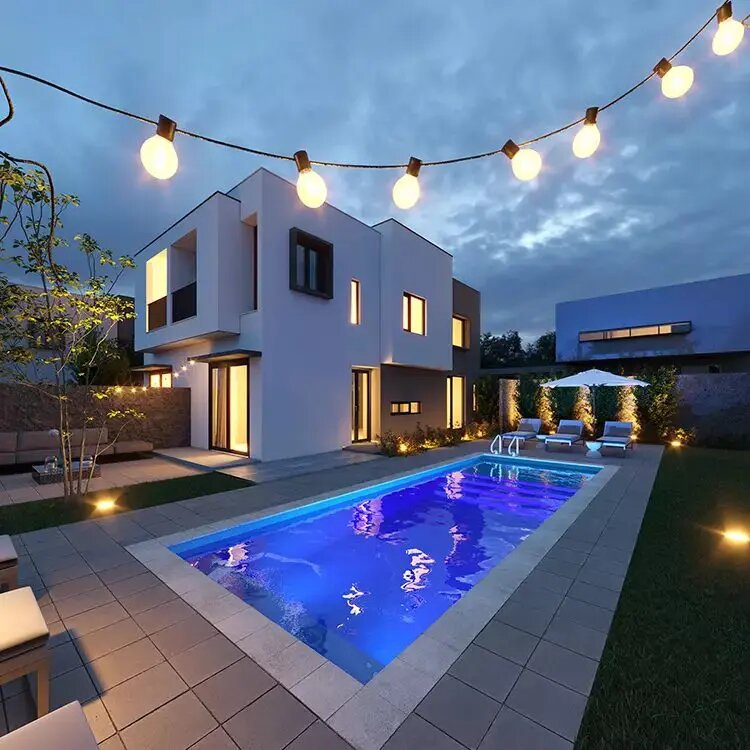When it comes to installing a swimming pool in your backyard, there are several options to consider. Two popular choices among homeowners are fiberglass pools and concrete pools. Each of these options has its own set of advantages and disadvantages.
In this article, we will delve into the pros and cons of fiberglass pools and concrete pools, helping you make an informed decision about which type of pool is best suited for your needs.
Installation Process and Time
One of the first factors to consider when comparing fiberglass pools and concrete pools is the installation process and time involved. Fiberglass pools are pre-manufactured and delivered as a single unit to the installation site. This means that the installation process is relatively quick and efficient. Typically, the installation of a fiberglass pool can be completed within a matter of days.
On the other hand, concrete pools are constructed on-site using steel rebar and poured concrete. The construction process is more complex and time-consuming compared to fiberglass pools. It involves excavation, formwork, steel reinforcement, and the pouring and curing of concrete. As a result, the installation of a concrete pool can take several weeks or even months, depending on the size and complexity of the design.
Durability and Maintenance
Durability and maintenance are crucial factors to consider when evaluating different types of swimming pools. Fiberglass inground pools are known for their durability and longevity. They are constructed using a high-strength composite material that is resistant to cracking, fading, and staining. The smooth gelcoat surface of fiberglass pools inhibits the growth of algae and reduces the need for frequent cleaning and maintenance. Additionally, the non-porous nature of fiberglass prevents the absorption of chemicals, resulting in lower chemical usage and maintenance costs over time.
Concrete pools, on the other hand, are highly durable but require more maintenance. Over time, concrete can develop cracks and surface imperfections due to factors like ground movement and freeze-thaw cycles. These cracks can lead to water leakage, which may require expensive repairs. Concrete pools also require regular brushing and cleaning to prevent the growth of algae and other contaminants. The porous nature of concrete makes it more susceptible to staining and requires periodic acid washing to maintain its appearance.
Design and Customization
If you have specific design preferences for your swimming pool, the flexibility and customization options offered by each pool type should be considered. Fiberglass pools in Canada come in a wide range of shapes, sizes, and styles, offering a variety of design options to choose from. They can be customized with features like built-in spas, tanning ledges, and waterfalls. However, it’s important to note that the customization options for fiberglass pools are limited compared to concrete pools.
Concrete pools offer the ultimate flexibility in terms of design and customization. They can be constructed in any size, shape, or depth, allowing for a truly personalized pool that complements your outdoor space perfectly. Concrete pools can be enhanced with various finishes such as tiles, pebbles, or aggregate, adding aesthetic appeal and creating a unique visual effect. The ability to customize every aspect of a concrete pool gives homeowners the freedom to create a one-of-a-kind swimming pool.
Cost Considerations
Cost is an important factor for most homeowners when deciding on a swimming pool. The cost of a pool depends on various factors, including the size, design complexity, location, and additional features. In general, fiberglass pools tend to have a lower upfront cost compared to concrete pools. This is because fiberglass pools are factory-manufactured, which reduces the labor and construction time required.
Concrete pools, on the other hand, tend to have a higher upfront cost due to the labor-intensive construction process. The customization options available for concrete pools can also contribute to the higher cost. Additionally, concrete pools often require more ongoing maintenance and repairs, which can increase the long-term costs associated with owning a concrete pool.
Conclusion
Both fiberglass pools and concrete pools have their own set of pros and cons. Fiberglass swimming pools offer quick installation, durability, low maintenance, and a wide range of design options, but with limited customization. On the other hand, concrete pools provide ultimate design flexibility, customization possibilities, and long-term durability, but require more maintenance and have a higher upfront cost.
When deciding between these two types of pools, it is important to consider your specific needs, budget, and preferences. Consulting with a professional pool installer or contractor can help you further evaluate the pros and cons based on your individual circumstances. Ultimately, the choice between fiberglass pools and concrete pools will depend on your priorities, aesthetic preferences, and long-term plans for your backyard oasis.
If you are looking for a distributor of fiberglass swimming pools in Canada, you can rely on Pentram Pools. For more information, visit the website here:https://pentarmpools.com/



